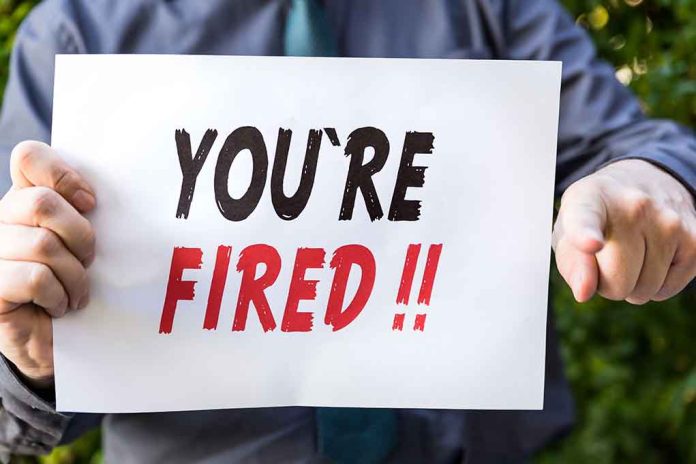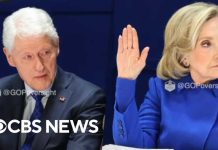
President Donald J. Trump orders the firing of all Biden-era U.S. Attorneys, sparking controversy and debate over the future of the Justice Department.
Key Takeaways
- Trump directs the Justice Department to fire all U.S. attorneys appointed during the Biden administration.
- The president cites the need to “clean house” and restore confidence in the justice system.
- This move is seen as a departure from the typical practice of requesting resignations.
- Trump accuses the Biden administration of politicizing the Justice Department.
- The decision has led to resignations and protests within the Department of Justice.
Trump’s Bold Move to Reshape the Justice Department
In a sweeping decision that has sent shockwaves through the legal community, President Donald J. Trump has ordered the termination of all U.S. Attorneys appointed during the Biden administration. This dramatic action, announced on Trump’s Truth Social platform, is being framed as a necessary step to address what the president views as unprecedented politicization within the Department of Justice.
Trump’s directive goes beyond the typical transition process, where incoming administrations often request resignations from politically appointed officials. Instead, the president has called for immediate terminations, signaling a more aggressive approach to reshaping the federal justice system.
Democrats and the media will throw a fit over this but it is normal. Every administration does this. https://t.co/1O1q6KJLjg
— Ryan Saavedra (@RealSaavedra) February 19, 2025
Restoring Confidence in the Justice System
The president’s decision is rooted in his belief that drastic measures are needed to restore public trust in the Department of Justice. Trump has been vocal about his concerns regarding the agency’s conduct, particularly during the 2024 presidential election.
This move is seen by supporters as a necessary step to ensure the impartiality and effectiveness of the justice system. However, critics argue that such a wholesale removal of appointed officials could disrupt ongoing investigations and prosecutions.
Implications and Reactions
The president’s decision has already had significant repercussions within the Department of Justice. In a high-profile case, Trump ordered the DOJ to drop a corruption investigation into New York City Mayor Eric Adams, leading to the resignation of acting U.S. Attorney Danielle Sassoon and five other staffers.
This accusation of a “quid pro quo” arrangement has further fueled the debate over the appropriateness and implications of Trump’s sweeping directive. The media and Democratic opponents are expected to scrutinize these actions closely, potentially framing them as an overreach of executive power.
Looking Ahead
Despite predictable criticism from liberal sources, Trump’s decision has his party’s support. The president’s supporters argue that this move is necessary to prevent the “holdover cancer” that affected his first presidency and to ensure a fair and impartial justice system for America’s future. However, the media and Democrats are expected to react negatively.
As the transition progresses, the legal community and the public will be watching closely to see how these changes shape the future of federal law enforcement and prosecution in the United States.









